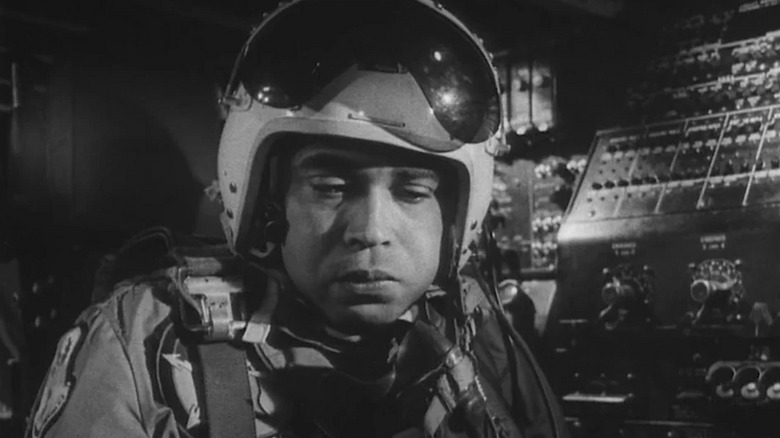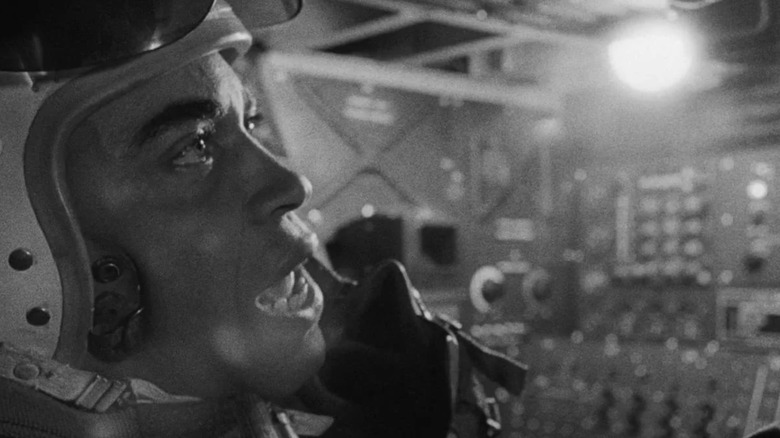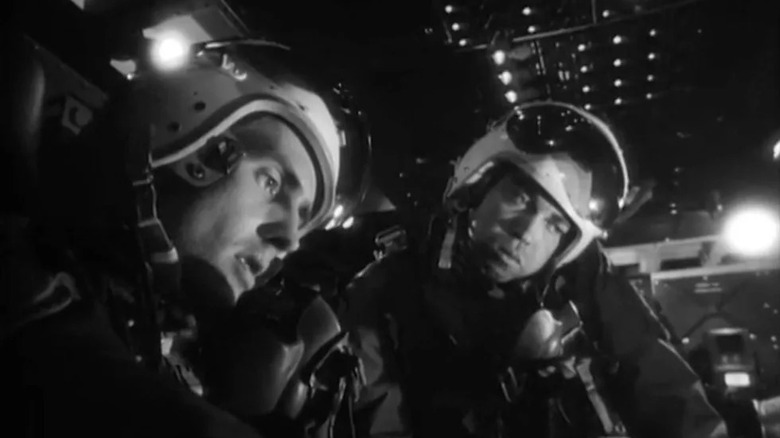Legendary actor James Earl Jones, who passed away on Monday at the age of 93, has a robust legacy filled with films, television, and theatre projects that aren’t just famous, but immortal. “The Empire Strikes Back,” “The Lion King,” “Conan the Barbarian,” “Field of Dreams,” “Matewan,” and “Coming to America” are merely the top titles on his lengthy resume, and they’re just the tip of the iceberg that was his fantastic performing career. However, when it comes to pure number-crunching (which is never a good way to judge the arts, but bear with us), it seems that none of those films emerge victorious on the Rotten Tomatoes Tomatometer. To be fair: as an aggregator, the Tomatometer is only able to judge reviews that it has access to, and since Jones’ career predates the internet by a good number of years, not every review of every Jones performance is weighted equally.
Perhaps that’s why a most surprising title actually lays claim to the name of James Earl Jones’ best film according to the Tomatometer: the 1994 documentary “Africa: The Serengeti,” which Jones narrated for director George Casey. Although Jones was a master at narration, like he was at all of his voice-over work, it’s likely that “Africa: The Serengeti” received such rapturous reviews because it was a documentary shot and made for IMAX, back when IMAX screens were only present at museums and other destination venues.
So, when it comes to judging Jones’ dramatic roles, once “The Serengeti” is out of the running (given its runtime of 39 minutes, it can’t really be considered feature-length, anyway), we’re left with a movie that ironically marked James Earl Jones’ first appearance on the big screen: “Dr. Strangelove or: How I Learned to Stop Worrying and Love the Bomb.”
Jones got a huge start for his film career thanks in part to his odd military service
We’re all used to the trivia question, “What was so-and-so’s first role in a movie?” with regard to the humble beginnings of Hollywood’s A-list stars. So many of the answers involve appearances as a non-speaking extra in big films or awkwardly small roles in cheesy genre flicks that don’t end up jiving with a star’s eventual persona. This is not the case for James Earl Jones; his role in “Dr. Strangelove” isn’t huge, to be sure, but he does play the beautifully named Lieutenant Lothar Zogg, who is a crew member of the fateful B-52 which ends up delivering the bomb at the end of the film (complete with Slim Pickens’ Major Kong riding atop it).
Starting a film career with the likes of a Stanley Kubrick movie is proof enough of Jones’ raw talent, yet perhaps it wasn’t just his talent that landed Jones the role. Sure, he’d already made quite the name for himself on the stage before cameras rolled on “Dr. Strangelove,” with Jones appearing in a series of Shakespeare revival productions around the time Kubrick went to work on the film. Yet years before Jones’ acting career really took off, he had already had a long, odd career in the US military. After joining the ROTC during college, he soon received a commission as a second lieutenant while working at a playhouse in Michigan. After being moved around to various locations and undergoing several training courses and schools, Jones’ battalion became a training unit. Although Jones was never deployed outright, he reached the rank of first lieutenant before being discharged. Since a large element of “Dr. Strangelove” involves military men and public officials who’ve been overtrained and yet underprepared for the possibility of nuclear warfare, Kubrick could likely see Jones’ special mixture of preparedness and naiveté thanks to his history.
Jones learns to be the voice of authority on screen…the hard way
Granted, Jones’ role in “Dr. Strangelove” is not particularly extensive, and one might guess that’s easily chalked up to his being green as a film actor. That’s only partially true; as it happens, Jones’ inexperience did lead to his role in the movie becoming diminished. As the actor himself wrote in the Wall Street Journal in 2004, he arrived at the “Strangelove” set well prepared, but Kubrick’s infamously meticulous way of working led to days when Jones wasn’t being filmed, resulting in his eventually forgetting his lines:
“I had learned the lines. But in the weeks of waiting around to shoot the scene I had forgotten them, and Kubrick said, ‘You mean you don’t know your words?’ He momentarily stopped chewing his gum and then said very coldly, ‘Let’s move to the next set.’ I felt uncomfortable with him afterward.”
According to Jones, the role of Zogg was to involve much more in the way of the character being the sole voice of reason onboard the B-52, a function that was essentially reduced to a single line where Zogg openly wonders if their craft might be part of a “loyalty test.” Despite Jones and Kubrick’s friction resulting in that aspect of the role being reduced, Jones’ natural gravitas and inner dignity allow the moment to stand out. It’s a quality the actor would bring to so many of his roles on screen in the future, whether he was playing a shining example of the US military like Admiral Greer in “The Hunt For Red October,” or a zealot cult leader in “Conan.” A voice of authority, the ultimate father figure, a performer adept at comedy, tragedy, and everything in between: James Earl Jones’ film career is an embarrassment of riches, and if there’s one thing his Rotten Tomatoes page correctly indicates, it’s that you can’t go wrong with any of his appearances.










